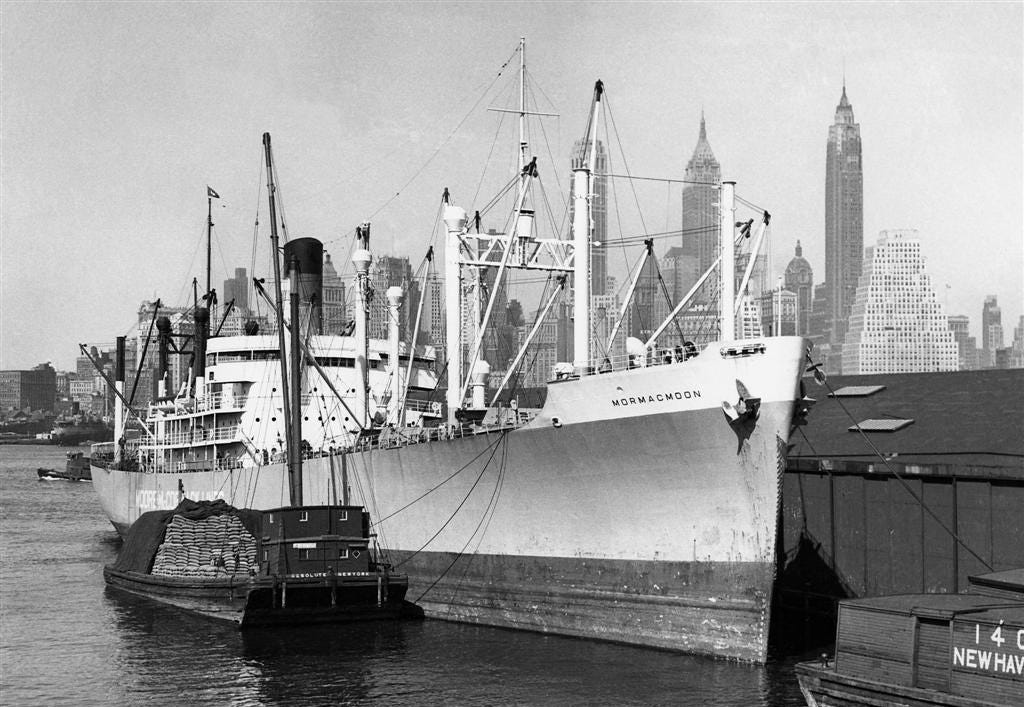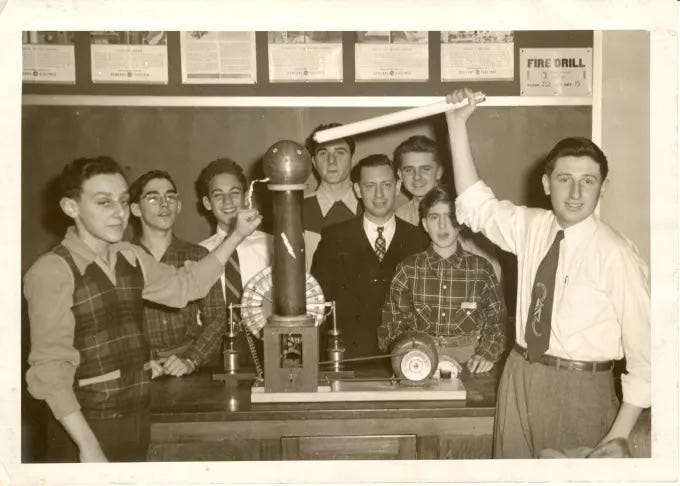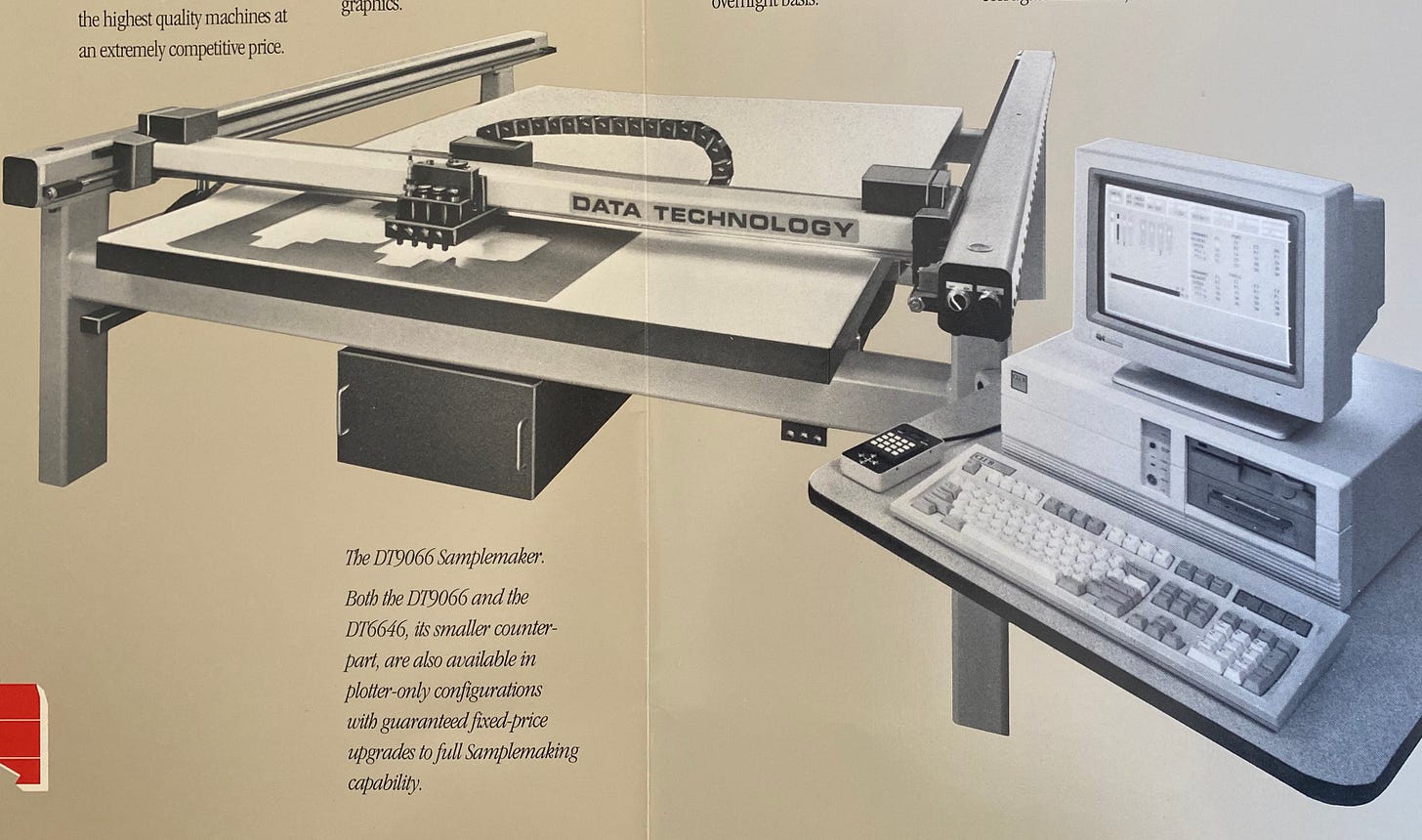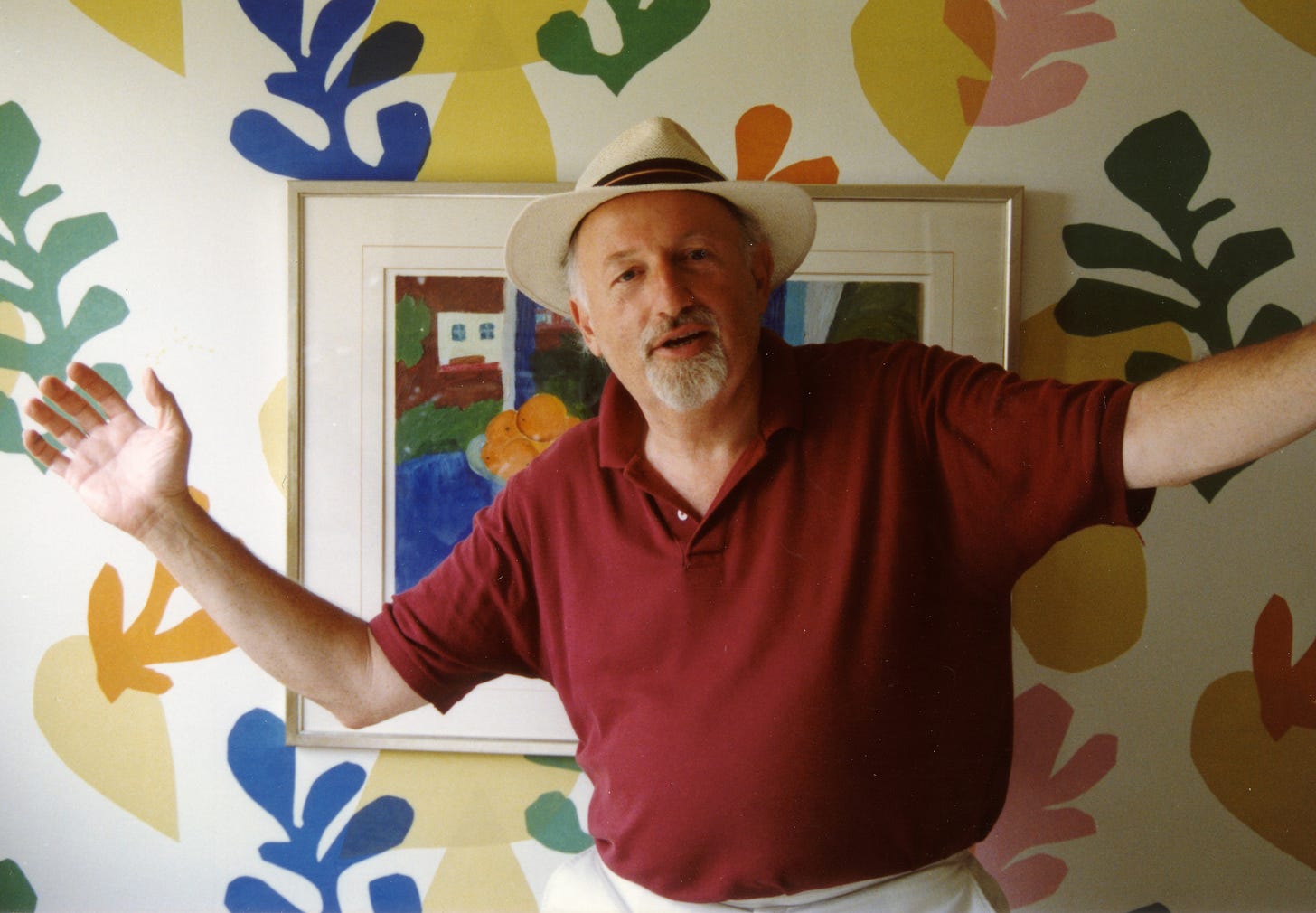Lucky To Be An American
An ode to my dad, and why I'm fighting for American democracy right now.
My dad passed away last week at age eighty-nine. He was lucky to be an American, and to live in the best place to be alive, ever. An America of opportunity for all, that welcomed immigrants and gave them a great public education. An America that believed in science and facts. An America where people from all backgrounds could live and work together and learn from each other, dream big and succeed, whether they had money or connections or not. And an America with a democratic process that people believed in, that everyone could participate in.
These great American things are all at stake in just two weeks, in the Nov. 5th election. If you want to join me in fighting for them, and honoring my dad’s lucky American life, here’s some things you can do.
My dad’s American story.
What makes my dad’s story great is that it was shared by so many Americans. It was typical, not exceptional.
Dad arrived in New York in 1945, at age nine. He was among a lucky few families with ties to America evacuated from Nazi-controlled Romania before the communists took over. He came over on a ship with lots of American soldiers returning from the war. On the three-week trip, they played with him and taught him English.
Upon arrival, dad enrolled in Joan of Arc Junior High on 93rd Street. He got made fun of at first as a funny-looking foreign kid among Blacks and Puerto Ricans, but quickly fit right in. He loved everything about New York, from the kids to the cars to playing handball and the Brooklyn Dodgers.
My grandmother was a seamstress, and my grandfather bought and sold odd lots of wholesale textiles. They eventually moved to Forest Hills in Queens, where dad went to Forest Hills High School, a couple years before Simon and Garfunkel did, and a decade before the Ramones.
I mention this because growing up we always had early folk and American roots music playing at home. Dad somehow discovered and loved artists like Leadbelly, Pete Seeger, Harry Belafonte, and Simon and Garfunkel, despite being a straight-laced engineer and otherwise missing the rebellious sixties. They embodied some American soul and spirit for him.
Dad went to MIT, became an engineer, and then a foot soldier in the space program. He worked at Draper Labs on the inertial guidance systems (gyroscopes) for the Mercury missions (where he met John Glenn), and then for the Apollo moon landing.
He helped start a couple of companies, including an early memory chip startup, which failed. Ultimately he and a partner bought a small company called Data Technology, which made electronic controls like optical encoders and precision manufacturing equipment for the mapmaking, printing and packaging, and footwear industries.
Dad was almost always in debt, like many small businesspeople. He took advantage of the float at the supermarket (they didn’t cash your check right away) and at the local bank. Dad once switched banks just for a weekend in the eighties to make payroll and avoid bankruptcy; don’t ask me how this worked but it did.
Despite living on the financial edge, dad employed hundreds of people over his career, many for decades. He was like a dad at work too, giving out turkeys for Thanksgiving, trying to help employees with addictions stay sober, and personally breaking up the occasional fight on the factory floor. It was kind of like a family there; and from engineering to the machine shop, many of them had an immigrant story like my dad’s.
Dad was all-in on innovation, whether pulling all-nighters to get a new machine working right or flying off to Japan, Europe, or South America to pitch foreign customers. The globalization of the eighties didn’t help his company, but he leaned into it, and ultimately kept the business going for 25 years before retiring.
Dad followed world events and politics closely, reading everything he could and often falling asleep watching the nightly news. He always attended and sometimes even spoke at our town’s annual ‘open town meeting,’ a multi-day citizen’s forum. And he always voted (mostly for Democrats but I’m guessing the occasional Republican), and encouraged us to vote and participate in the political process as well.
Dad was an optimist, thanks to his lucky American experience and the contrast with his early childhood under fascist rule. Things would work out. Truth and reason would prevail. People were mostly good. America would keep getting better. The world had problems, but would be OK.
Dad was even optimistic on climate. He loved hearing about the latest climate tech advances from me (it was a fun way to geek out with him toward the end) and was hopeful they’d enable us to reduce global emissions quickly.
When Trump got elected in 2016, dad wrote a poem expressing his hope that American democracy (which he called ‘the road’) would always persist:
there is room for everyone and everything on the road
the leaders, all of them, good and bad are people
they don’t have to be my people or your people
they will not be allowed to cut the road
nor to extract the anchors, like rotten teeth
But after seeing Trump in action for four years, he changed his mind.
Our last conversation last week - aside from plenty of I love you’s - was about the election and democracy, the importance of working on it and fighting for it.
And so fighting is what I’m doing these next two weeks, for all the things I value about America (they’re not guaranteed), and to honor my dad’s lucky American life. I hope you’ll join me.







